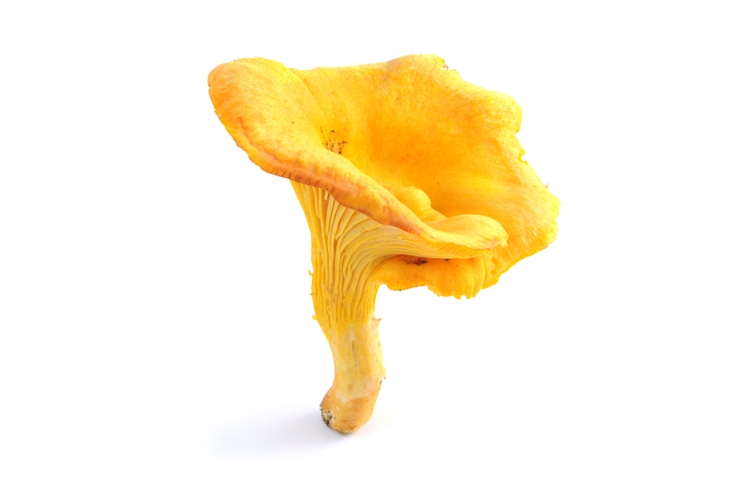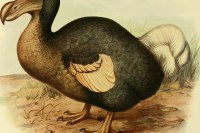Autumn’s wild bounty is a cause for celebration across the Continent. In France and Germany, people rush into the woods, motivated largely by greed. Families drink, eat and forage, while the elderly show their grandchildren what is — and isn’t — safe to eat.
In Britain, attitudes are different. Even conkers now seem suspect. We are particularly nervous about fungi, because we are told that picking mushrooms is both dangerous and bad for the environment. This is a shame. Britain has the perfect climate for some of the most flavoursome wild mushrooms known to man. They grow in our woods, pastures and hedges, yet almost all of us ignore them.
I am a keen mushroom forager and regularly lead fungi forays, so keep a close eye on foraging developments. In the New Forest, for instance, the current eruption of delicious ceps, chanterelles and horn of plenty is eclipsed by the number of notices sternly telling the public that they aren’t allowed to pick them. The same is true in the car parks of the National Trust and the Royal Parks. The advice seems to be: ‘Look, but don’t touch, let alone taste!’
What’s more, foragers have started having to defend their pastime from local vigilantes. One elderly woman I know was recently accosted by a man who wanted to stop her ‘plundering’. He tried to seize her basket, because the nearby posters suggested she was up to no good.
But she wasn’t. The right to forage is ingrained in British law. It is rooted in the Charter of the Forest, the much overlooked — but arguably more important — cousin of Magna Carta. It was enacted in 1217, to allow everyone (as opposed to just the barons) basic rights to pick foliage, fruit and flowers. Over the past eight centuries there have been modifications, but if you are in a place you are entitled to be — regardless of this being a site of special scientific interest, a National Trust property or a Wildlife Trust reserve — you can pick (provided the plant or mushroom is not specifically protected). There are some exceptions, but for the most part, you are free to pick for your own personal consumption. Only unregulated foraging for commercial use is banned.
Despite the law, the campaign against foraging is becoming more animated. Last year, the police issued 35 warnings to people foraging for mushrooms, chestnuts and other wild produce, a sevenfold increase on 2016. Environmentalists explain that our woods are being devastated by naked greed and that animals are going hungry. Gangs of eastern European commercial pickers are supposedly stripping the forests bare to supply hip London restaurants, while threatening our fungal heritage.
Ignorance of mushrooms is, if anything, even more rife among our eco-quangos than the general public. A mushroom is actually no more than a fruiting body. It is like an apple or a blackberry. It springs up from a hidden structure, a mycelium, which lurks unseen throughout the year beneath soil or bark. When conditions are optimal, this pushes out mushrooms, each of which produces millions of spores. So picking a mushroom is no more damaging than harvesting any other fruit. By the time it’s big enough to be picked, a mushroom will have already dropped most of its spores. Carrying mushrooms around a wood only aids dispersal.
The stories about the gangs of Poles are also deliberately misleading. Just as we Brits like to bask on Spanish beaches till we go pink, so our immigrant plumbers and care workers like to snuffle in the woods. When Poles have a day off, they go mushroom hunting, because it is a cheap, traditional hobby. On their weekends, they forage and leave the woods with brimming baskets. They go home to drink vodka and feast on some of their mushrooms, as they preserve the rest for winter.
What they aren’t doing is picking mushrooms for commercial reasons. I have never seen any evidence of this — and nor do the figures stack up. Commercial picking is against the law, under the Theft Act 1968. But you need only look at the economics of mushroom picking to see that it wouldn’t really make much sense as a business idea. Tesco is currently buying in tonnes of wild mushrooms from Russia at £6 per kilo (they are sold in the aisles at £20). Now, it takes a while to find a kilo of wild mushrooms, particularly the small expensive ones. Many, if not most, will be of poor quality. They need grading, packaging, paperwork, insurance and transport to a wholesaler. A transit van full of prime mushrooms gathered in the New Forest might conceivably hold 100kg, but this would have taken at least 100 man hours to gather and process. Travel to and from a London wholesaler would take another day. Wild mushroom picking is simply not commercially viable in the UK.
This isn’t to say ‘commercial’ foraging doesn’t exist. It’s rife, and has been going on for years. The miscreants are members of the Women’s Institute. They’ve been stripping our hedgerows bare of blackberries, crab apples and rowan berries to sell in jam, jelly or tart form for almost a century. While no one would seriously suggest the WI are infringing any laws or are indulging in ‘eco-vandalism’ when they go blackberry picking, the same applies to mushroom pickers. The impact of mushroom foraging is minuscule, especially when compared to the devastation reaped by birds, voles and slugs, who eat far more wild mushrooms than humans.
While the people who are trying to stop foraging have the best of intentions, they don’t have any legal backing. They put up signs, and generally get away with this because they are never challenged. A Pole enjoying his Sunday afternoon forage is perhaps unaware that he has the backing of ancient legislation. He has every right to be in the woods, rummaging through the undergrowth for whatever delicacies he can find.
Once you know what you are doing — and it is, of course, worth starting out with someone who knows what’s what — mushroom picking is a wonderful activity. Our woods are full of delightful species, many of which can’t be cultivated commercially. Children like foraging, and tend to be better fungi hunters than their parents because they are lower to the ground and have sharper eyesight. We should follow the example set by the Poles. So ignore the warning signs: Britain’s annual mushroom bounty deserves to be celebrated — and picked.






Comments